how to add user to google analytics
Are you looking to add a new property in Google Analytics? If you have multiple websites or apps, then you can add them as a property in Analytics for tracking.
Google Analytics allows you to have up to 50 properties in a single account. But often people find it difficult to set up a new property, because it requires editing code.
This is where WordPress plugins like MonsterInsights comes into play. You can set up Analytics on your new property without having to touch a single line of code using the plugin.
So in this article, we'll walk you through how to add a property in Google Analytics. Let's start…
MonsterInsights is the best WordPress Analytics plugin. Get it for free!
Understanding Property, Account, and View in Google Analytics
Your Analytics profile consists of 3 different components. They are account, property, and view (if you're using Universal Analytics).
Here's a closer look at each of them:
- Account: You should have at least one account to access the analytics report.
- Property: A property can be a website or a mobile app that you'd like to track in Google Analytics and has a unique tracking ID.
- View: A view is the access point for your reports if you're using Universal Analytics. For example, within a property you can have different views for viewing all the data for your website, viewing only a specific subdomain, like blog.example.com, or viewing only Google Ads traffic. Views do not exist in Google Analytics 4.
Now let's take a look at how to add a website to Google Analytics.
How to Set Up a Property in Google Analytics
Just follow these steps and you can add your new website for tracking in no time.
Step 1: Create a New Property in Google Analytics
First, log in to your Google Analytics account and select the website in which you'd like to add a new property.
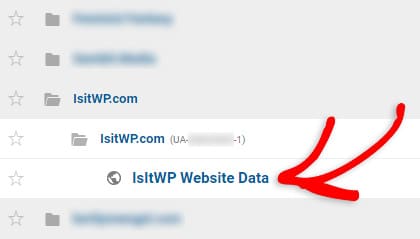
Now click on Admin in the left taskbar.

In the Property column, click on the dropdown menu, and then, click Create new property.
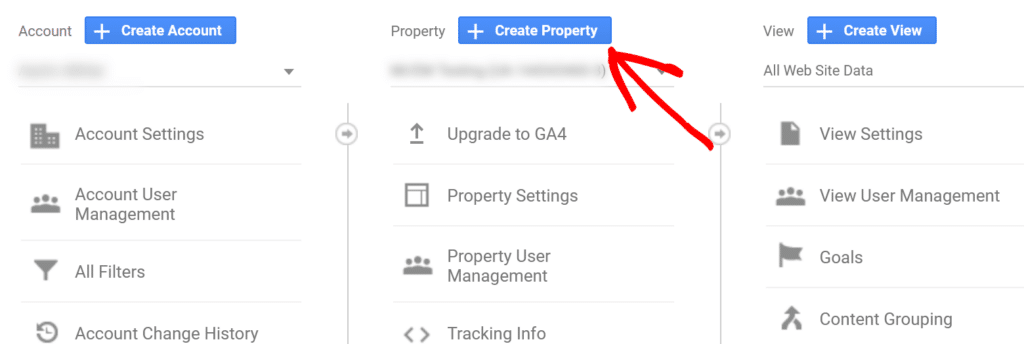
On the next screen, enter a property name, select your reporting time zone, and currency.
Now, you'll have to enter the property details of your website. Start by entering a name, selecting a reporting time zone, and choosing your currency.
Next, you can choose from three options:
- Set up a GA4 property
- Set up a Universal Analytics property
- Set up both at the same time (recommended option)
To set up a GA4 property, enter your property name, then choose your time zone and currency. Click Next.
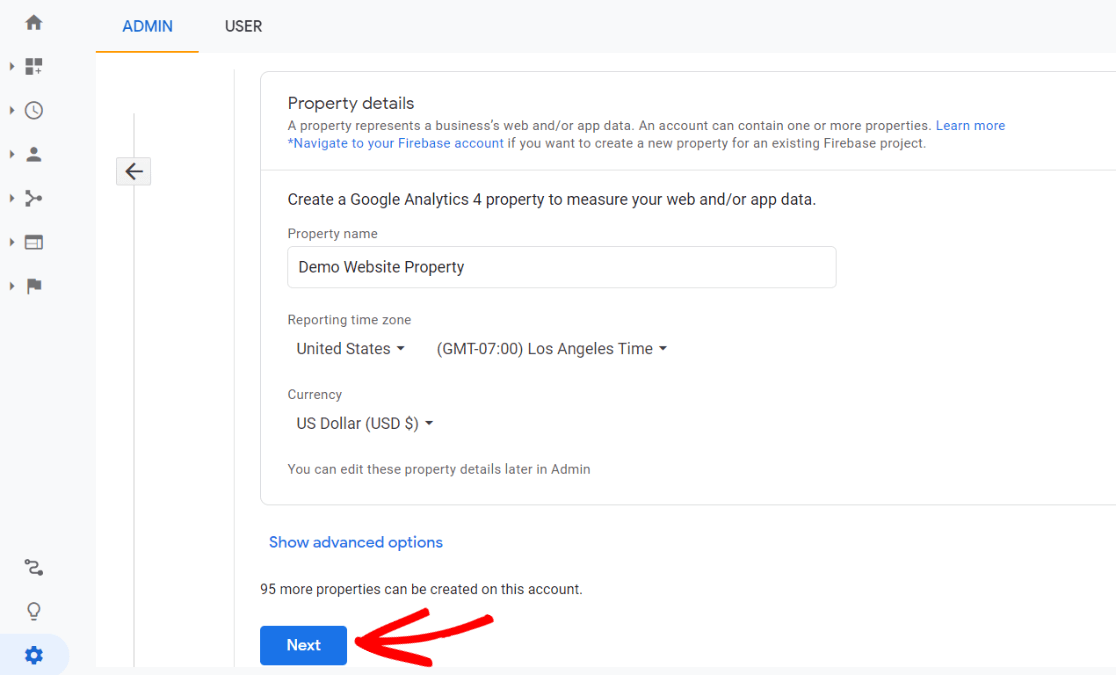
Fill in the rest of the business information, then scroll down and click Create.
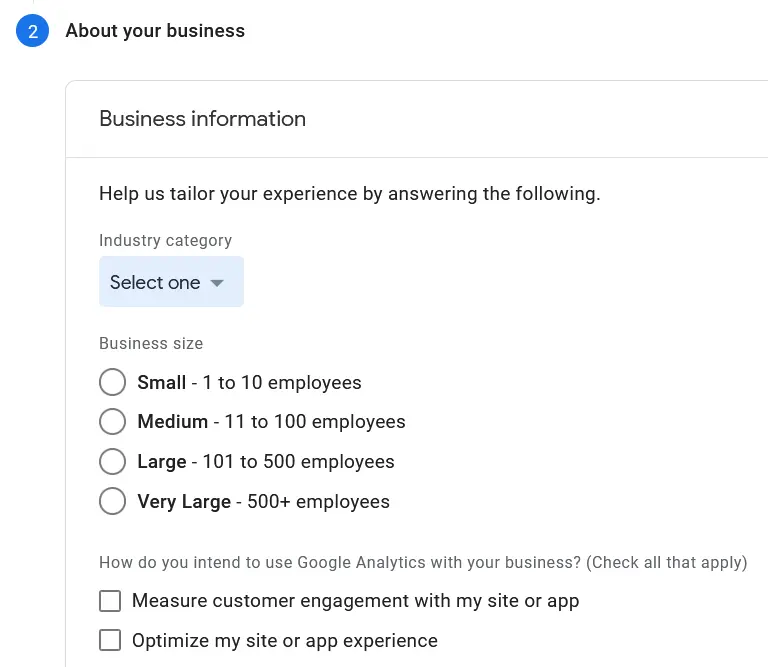
You may see a popup at this point to accept the Google Analytics Terms of Service. Go ahead and check the checkbox and click I Accept.
Your next step is creating your data stream. Since you're setting this up for a WordPress website, click the Web button.
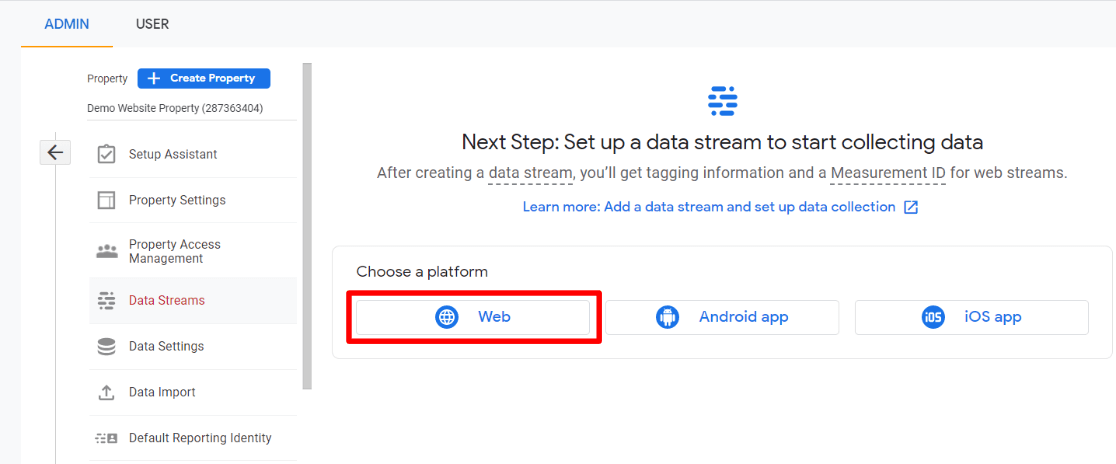
Now, just fill in your website's URL and name, then click Create stream.
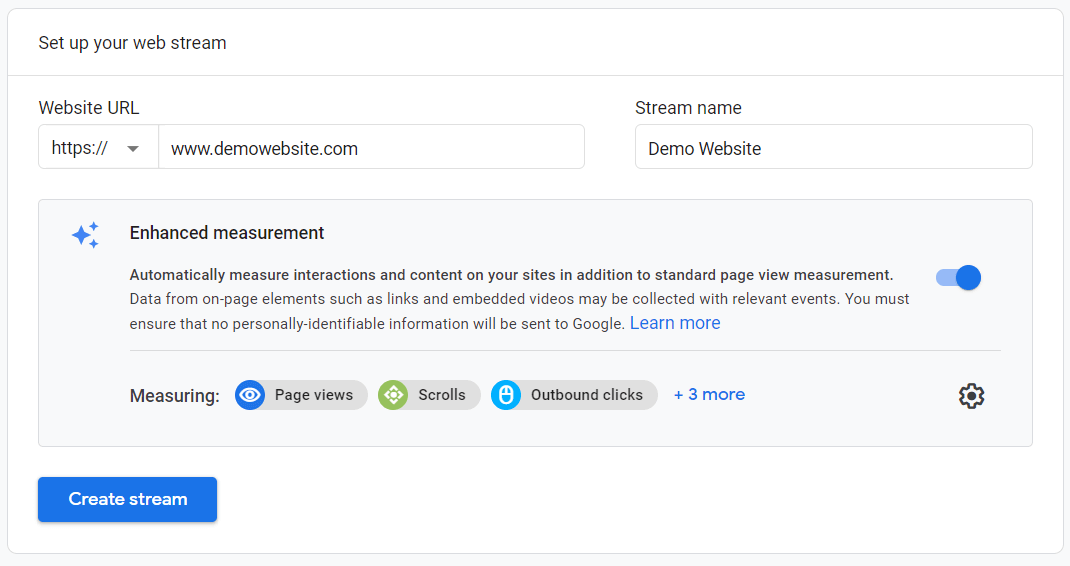
That's it! Move on to Step 2.
To set up a Universal Analytics property only, enter your property name and choose your time zone and currency. Then, click the Show advanced optionslink.
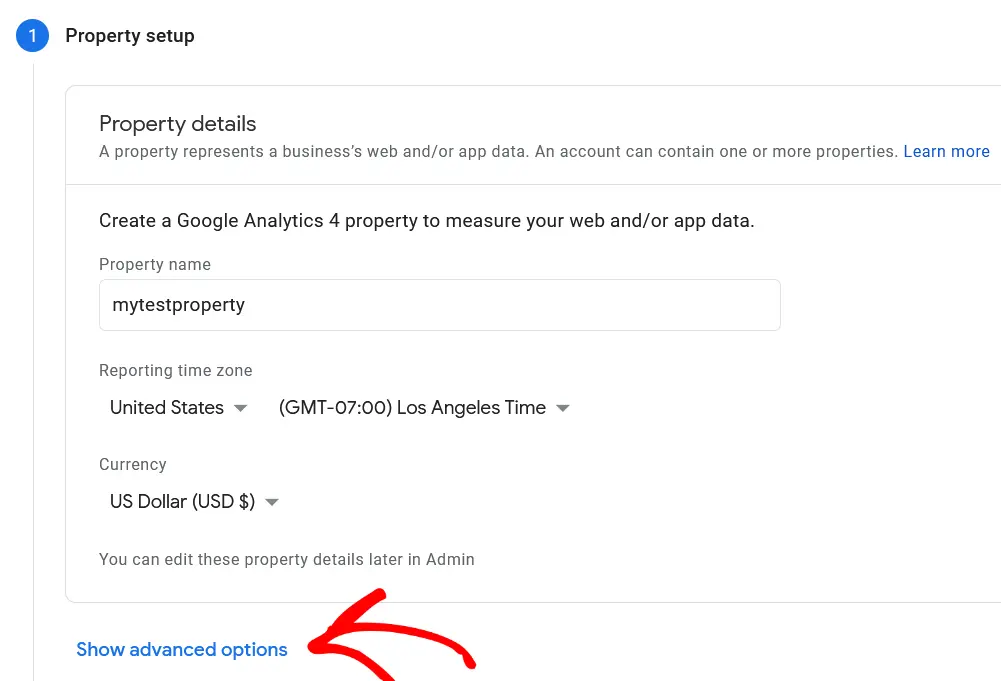
After that, enable the Create a Universal Analytics property option.
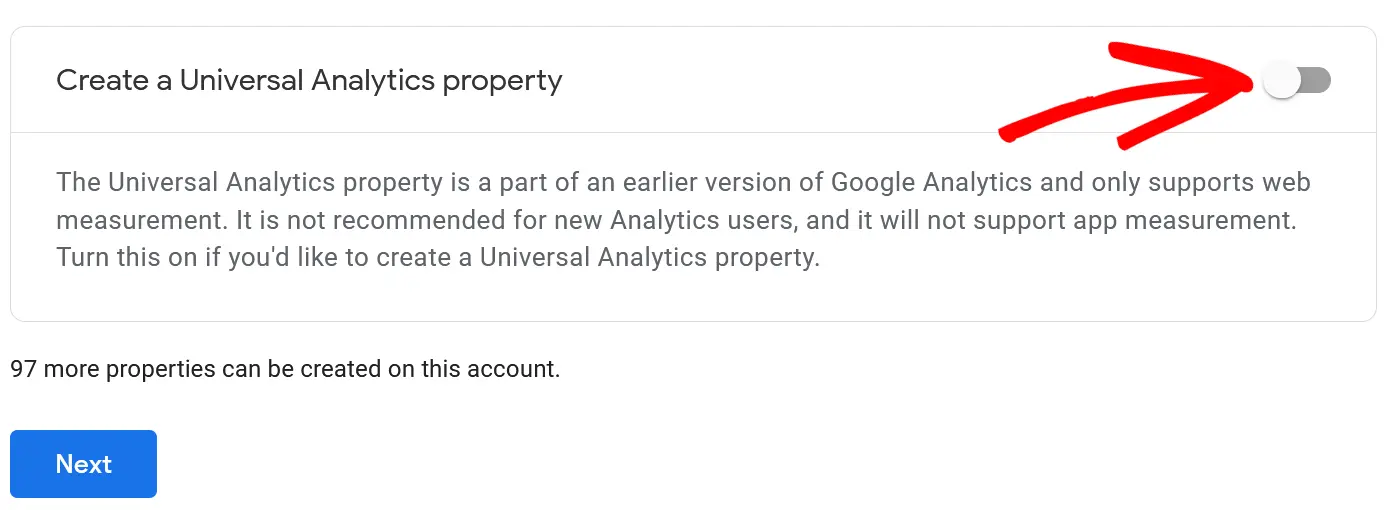
Then, enter the URL of your website and make sure you select the Create a Universal Analytics property only option. This will ensure that you're able to use other tracking platforms and measure your ad performance accurately.
Click Next when you're done.
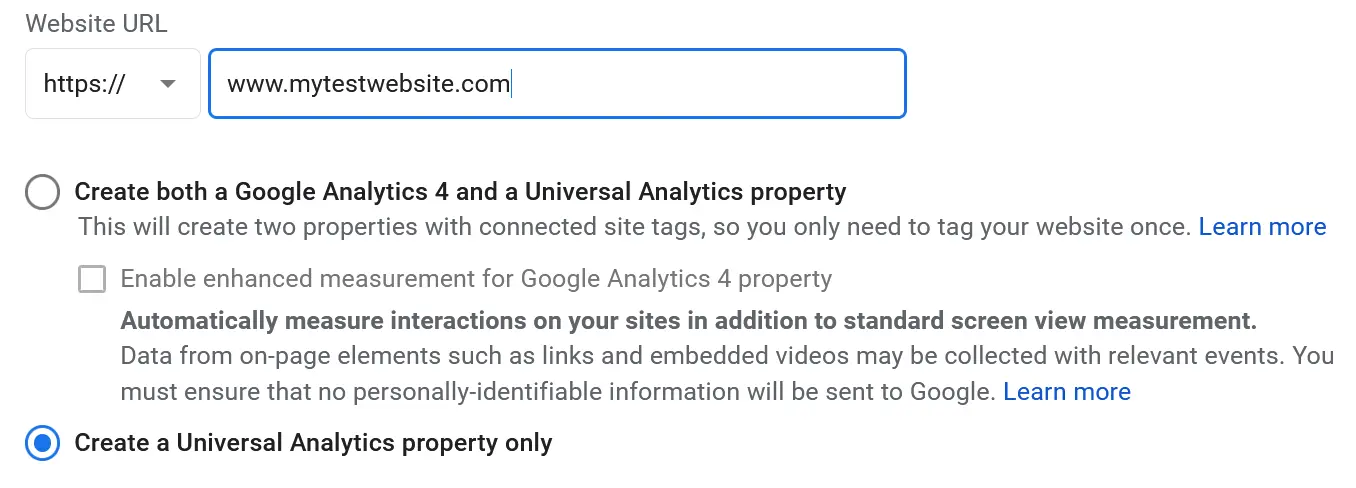
In the next step, you'll need to enter your business information. For instance, select an industry and size of your business.
After you're done, click the Create button.

You may see a popup at this point to accept the Google Analytics Terms of Service. Go ahead and check the checkbox and click I Accept. Once you accept the terms, you'll be taken to a screen where you can see the Tracking ID and the tracking code for your site.
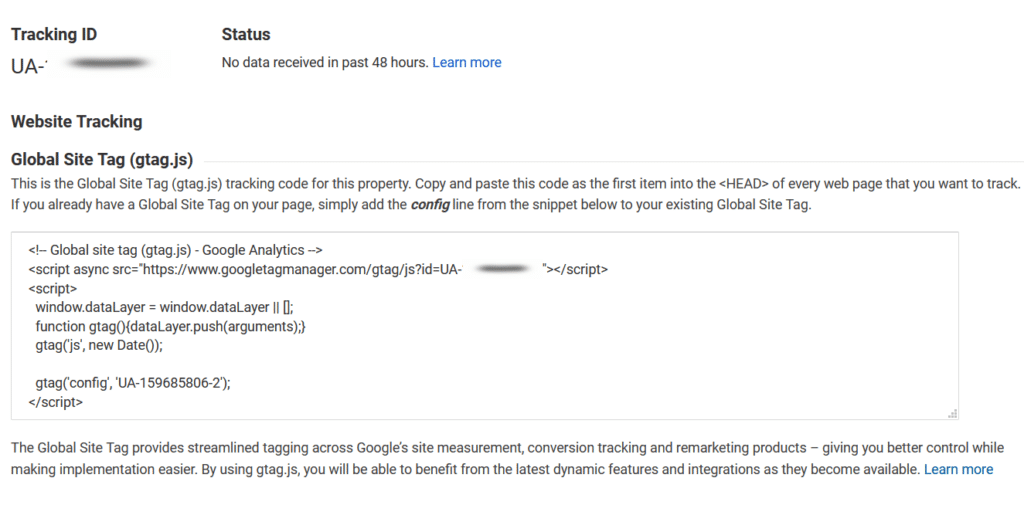
That's it! Move on to Step 2.
To set up both GA4 and Universal properties at the same time, enter your property name and choose your time zone and currency. Then, click the Show advanced optionslink.

Toggle on the switch to create a Universal Analytics property. Then, fill in your website's URL and select the checkbox to create both properties. Click Next.
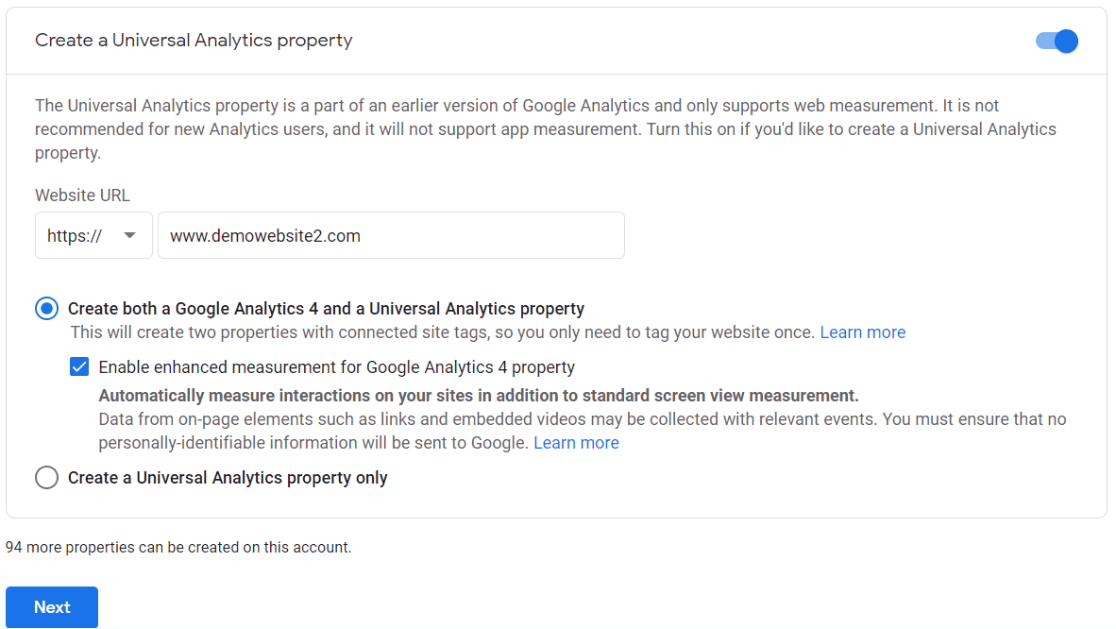
Fill in your business details and click Create. You may see a popup at this point to accept the Google Analytics Terms of Service. Go ahead and check the checkbox and click I Accept.
That's it! Move on to step 2.
Step 2: Set Up Tracking on Your WordPress Website
To set up Google Analytics tracking on your property (website), you will need MonsterInsights.
It's the best Google Analytics plugin for WordPress, as you don't have to do coding to enter the tracking code or have to hire a developer to do the job.
You can start by downloading and installing the plugin. Just go to your WordPress admin area and navigate toPlugins » Add New. Next, search MonsterInsights in the search bar and click Install Now.
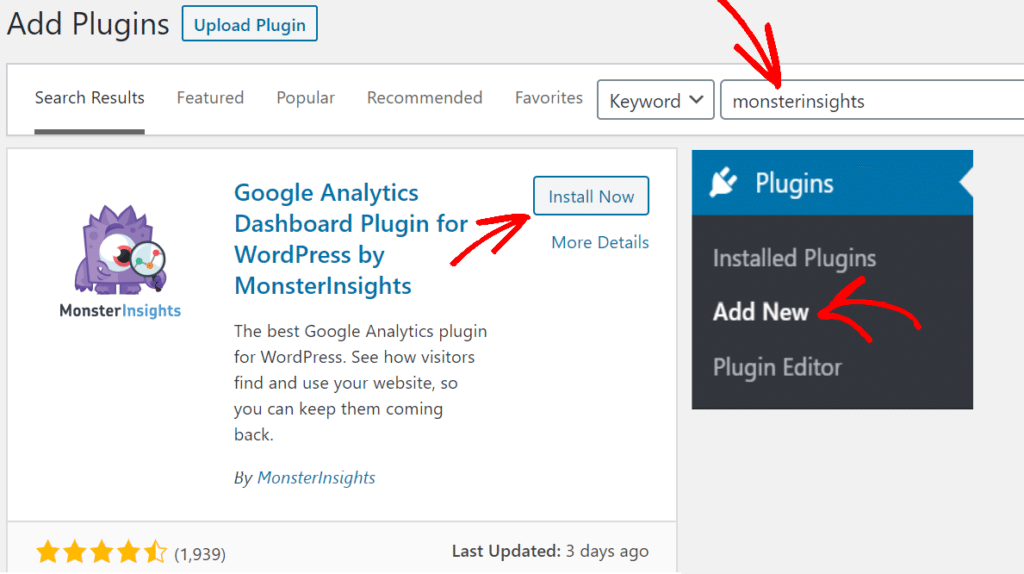
Once the plugin installs, click Activate.
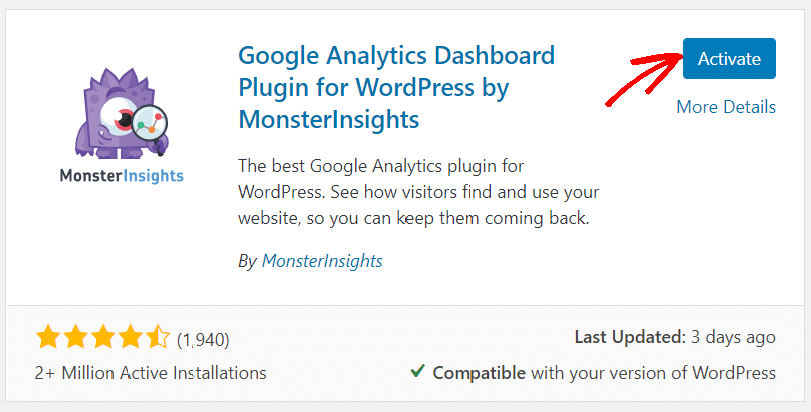
Upon activating the plugin, you will be taken to MonsterInsights welcome screen. Click on Launch the Wizard! button.
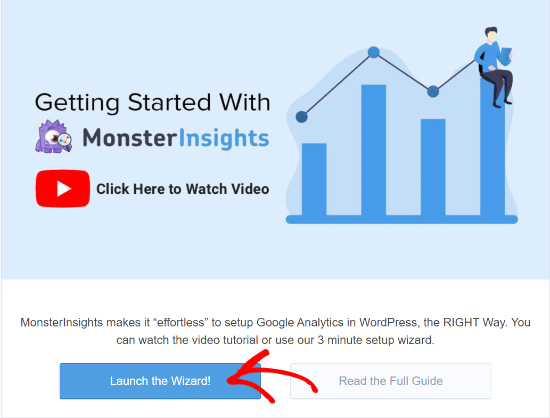
Now select the category that describes your website and then click Save and Continue.

Next, you'll have to connect MonsterInsights to your website. To do that, click Connect MonsterInsights button.
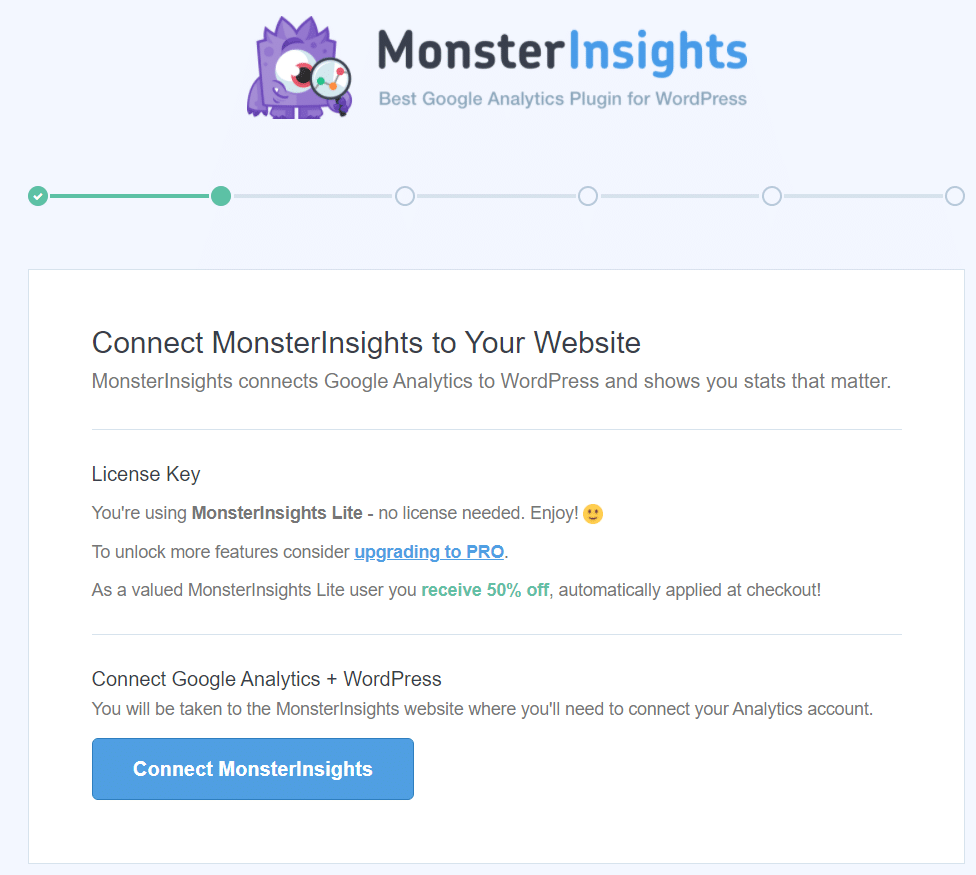
After that, choose your Google account. Make sure you select the account you used to create a new property in the first step.
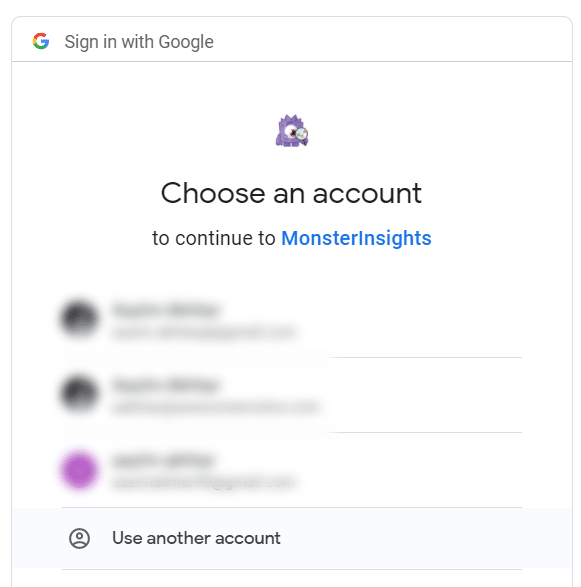
Next, click Allow to give MonsterInsights access to your Google Account.
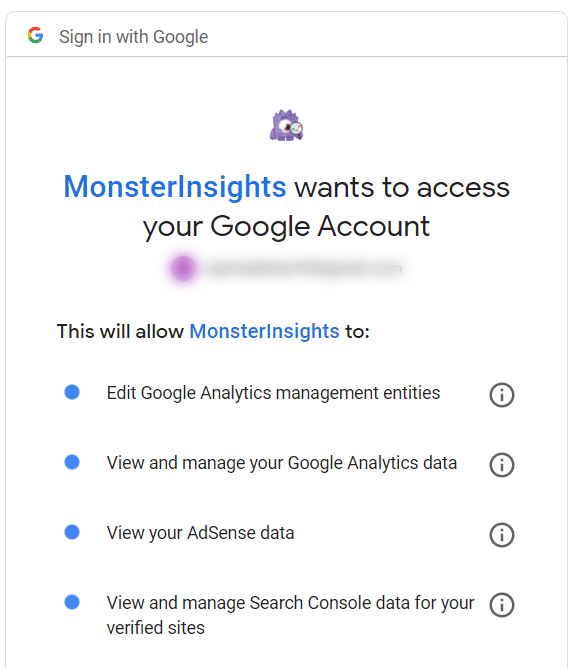
Now select your newly created property and click the Complete Connection button.
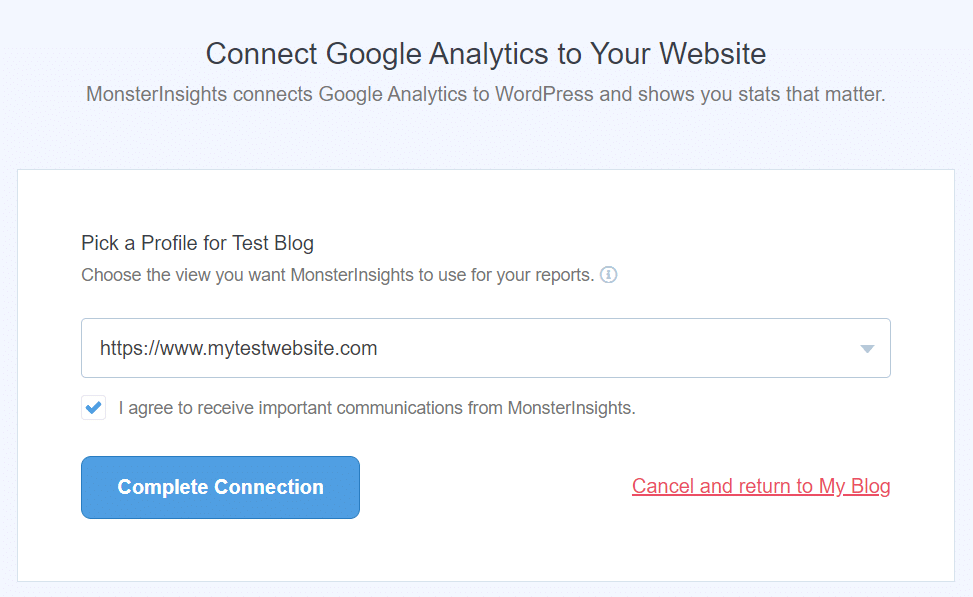
MonsterInsights will show you some recommended settings. For instance, you can select the file download tracking extensions, set up affiliate link tracking, and choose which user roles can see the reports.
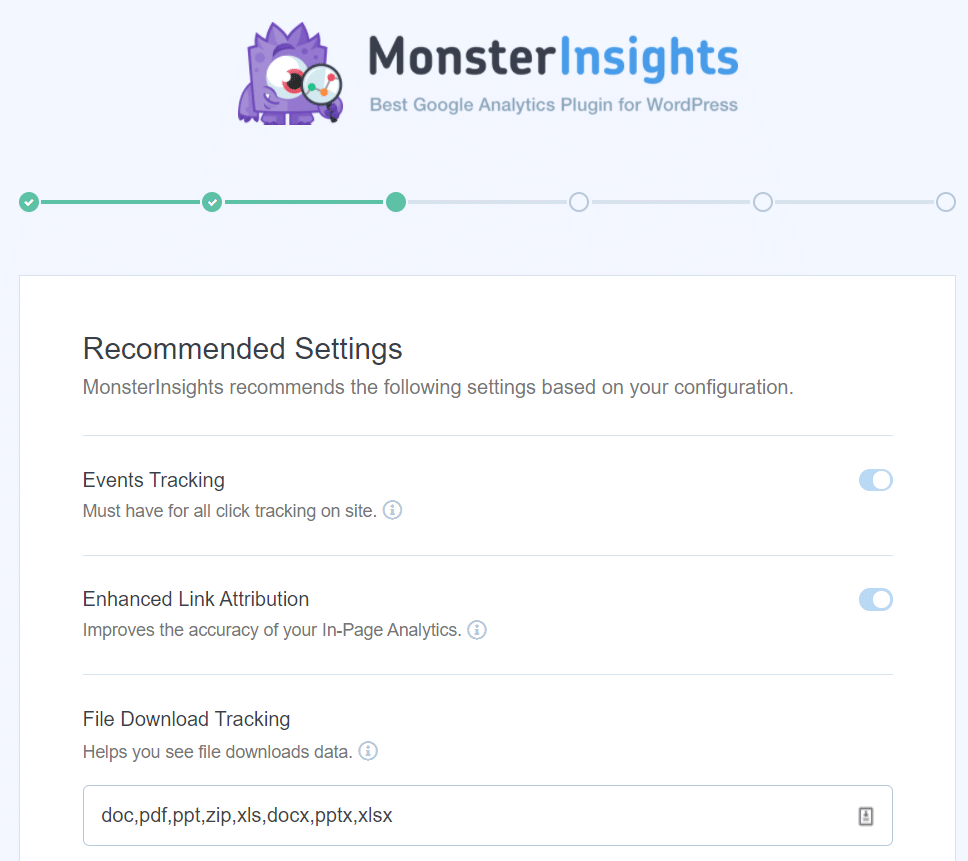
Once you're satisfied with the settings, click Save and Continue.
The wizard will then offer some recommended addons. You can upgrade to MonsterInsights Pro and use these addons for setting up advanced tracking. Click Save and continue.
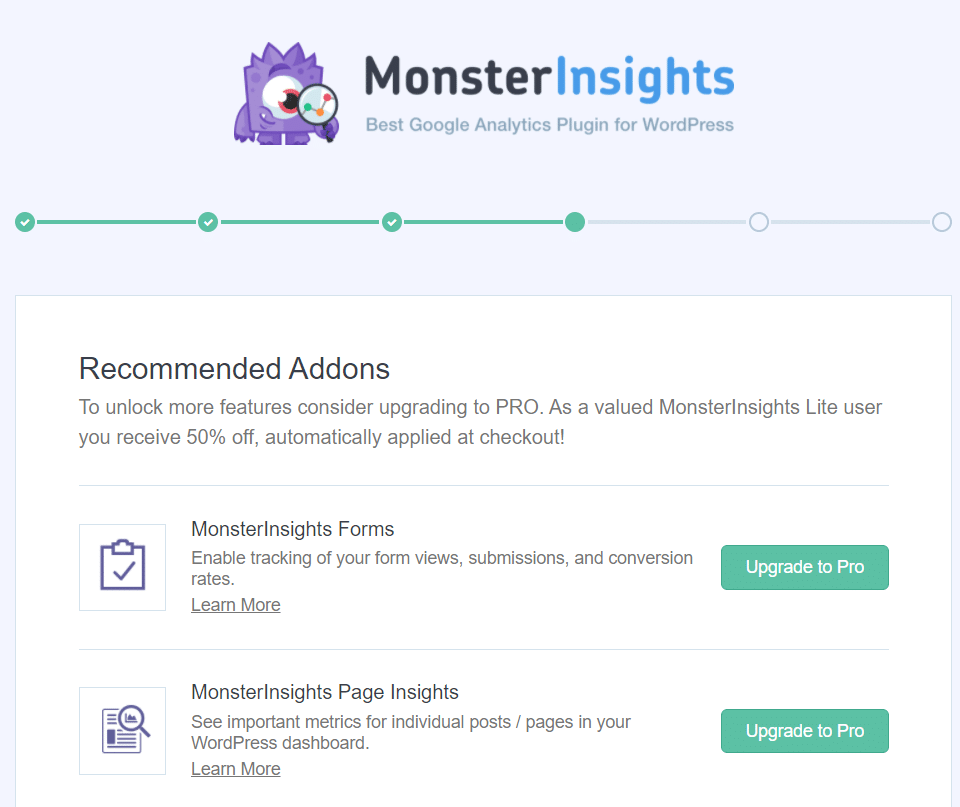
In the last step, simply click Finish Setup & Exit Wizard.
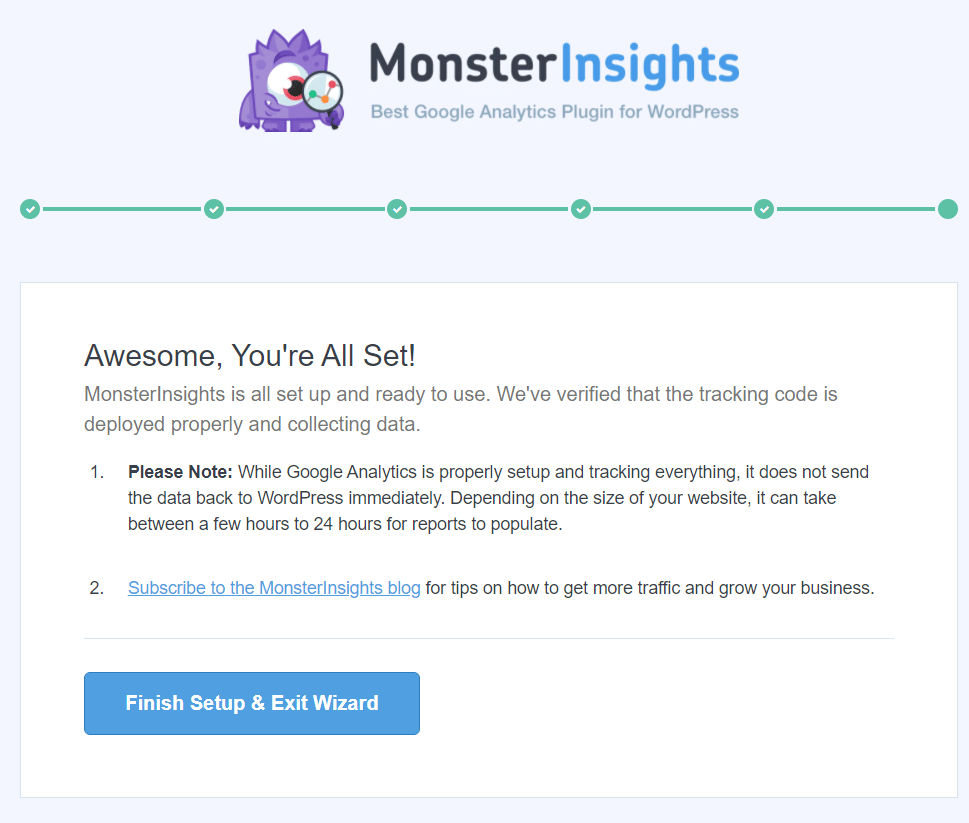
Now, you'll be able to set up dual tracking if you have both a Universal Analytics property and a GA4 property. Setting up dual tracking will bring in all your historical data from Universal Analytics, while giving you the benefits of Google Analytics 4.
On the main Settings page, scroll down to Google Authentication and find the Dual Tracking Profile box. Here, you can input either your Universal Analytics Tracking ID or your GA4 Measurement ID, whichever one you didn't authenticate with in the setup wizard.
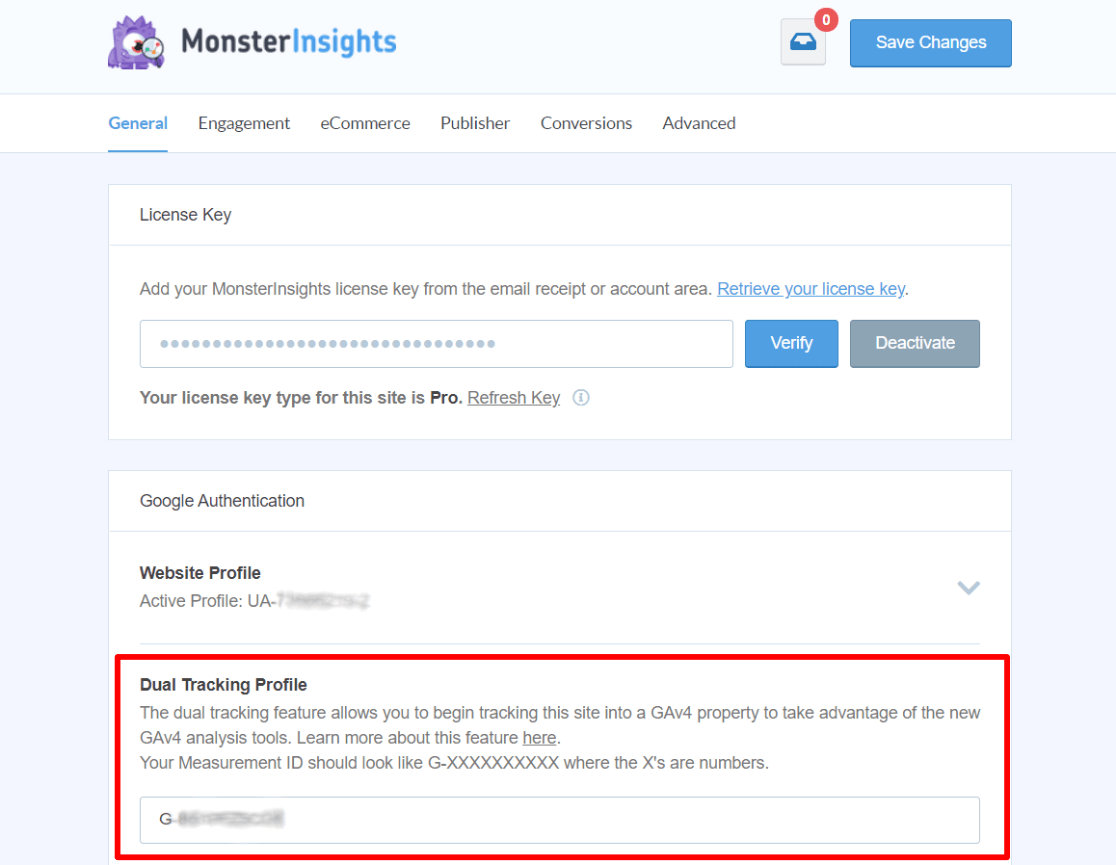
That's it! You're all set.
It can take a few hours for Google Analytics to start collecting data and show it in the reports.
Besides setting up Google Analytics, MonsterInsights offers lots of other benefits. It automatically sets up advanced tracking right out of the box. For example, it will set up affiliate link tracking, outbound links, file downloads, and much more.
And with the help of its addons, you can track your eCommerce store, make your site GDPR compliant, and track form conversions. Check out our detailed article on is MonsterInsights Pro worth it.
We hope this tutorial helped you to add a new property in Google Analytics. You can also check our guide on how to add Google Analytics to WordPress without a plugin.
And don't forget to follow us on Twitter and Facebook for more Google Analytics tutorials.
how to add user to google analytics
Source: https://www.monsterinsights.com/how-to-add-a-property-in-google-analytics/
Posted by: lemoshatill1975.blogspot.com

0 Response to "how to add user to google analytics"
Post a Comment